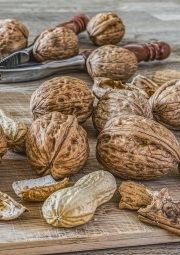UK sugar reduction off target
Data from Public Health England, as reported in this article, “Efforts to cut sugar out of food way off target” by the BBC, suggests that, despite sugar levels dropping in our shop-bought food and drinks, there is still a way to go to reach the targets set out.
The target of reducing sugar was brought in with the soft drinks industry levy, or “sugar tax”, in April 2018 in an effort to combat child obesity, which, for Year 6 children, is currently at an all-time high. The report shows that the levy has had a positive impact, with sugary drinks seeing a 29% drop in sugar content, however, the same can not be said of all food and drink categories. The average sugar content in foods such as cake, sweets and cereals has seen a 2.9% reduction in sugar since 2015, which could see the sector fall short of the 20% target for 2020.
The BBC article also suggests that the amount of sugar in food bought at the supermarket has increased by 20,000 tonnes between 2015 and 2018, however this could be due to either portion sizes increasing or the amount of food bought rising with population increases.
So, despite there being positive steps forwards in a reduction of sugar in shop-bought items, there is still more that needs to be done to combat child obesity.
Why you’re more likely to fall ill in the winter
The common cold is frequently associated with a change in the seasons and colder weather, but one article by Healthline looks at why we might catch a cold easier during the winter months.
Despite the cold, wet weather, it turns out that the rain has little to do with it. When the weather takes a turn, we’re more likely to spend greater periods inside, in confined spaces, and this makes it easier for the transfer of germs and increases the risk of infection.
It’s also the case that, while your body being cold does little to affect your chances of catching an illness, the cold temperature helps viruses live longer, prolonging the risk of catching a cold or the flu.
The weather can also have an impact in other areas, such as the lack of vitamin D from less sunlight exposure. Vitamin D contributes to the normal function of the immune system, so if your vitamin D levels are low it can affect your likelihood of catching a cold.

Could nuts help prevent weight gain?
While a previous Nutrition News article found that hazelnuts can improve macronutrient levels, an article by Medical News Today has found that there is a link between nut consumption lesser risk of weight gain as we age.
The article references two recently published observational studies that suggest that regular nut consumption, of any kind of nuts, can reduce weight gain.
While the findings are interesting, it is important to note that this is an observational study and no causality has been established. That being said, the researchers cited several possible reasons for an association between nut consumption and reduced weight gain including them being high in fibre, which can increase the feeling of satiety, and the nut fibre, which binds better to fats in the gut; causing more calories to be excreted.
Share your thoughts
Agree with the findings in this week’s Nutrition News? Share your thoughts with us on Facebook and Twitter.
 Alison is Director and Founder of Metabolics who writes about Metabolics updates, events and natural healthcare. Her experience and passion for natural supplements and healthcare comes from her years of experience as a practising osteopath, having founded Metabolics in her search for high quality, natural products in her own work. Alison has been a qualified and practising Osteopath since 1981 and regularly gives seminars on a range of healthcare subjects to the wider practitioner community helping share her knowledge and experience.
Alison is Director and Founder of Metabolics who writes about Metabolics updates, events and natural healthcare. Her experience and passion for natural supplements and healthcare comes from her years of experience as a practising osteopath, having founded Metabolics in her search for high quality, natural products in her own work. Alison has been a qualified and practising Osteopath since 1981 and regularly gives seminars on a range of healthcare subjects to the wider practitioner community helping share her knowledge and experience.


